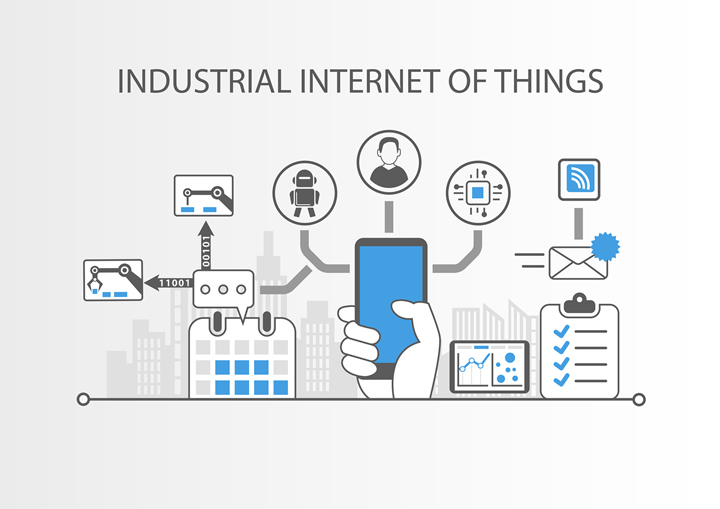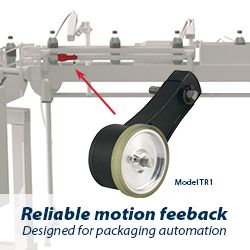Achieving sustainable manufacturing with IoT technology

The manufacturing industry is growing more ecologically conscious, embracing technologies that foster sustainability and operational efficiency. The shift towards sustainability, mainly enabled by IoT technology, is not just a trend but a significant move dictated by the ecological situation and market demands. According to a study by Statista, the global market value for IoT in manufacturing is estimated to reach approximately $3.3 billion by 2030, which highlights the transformative power of IoT for shaping sustainable manufacturing landscapes.
This article delves into how IoT solutions integrated into manufacturing processes can help achieve industrial sustainability.
Why is sustainability crucial in manufacturing?
With a public demand for more eco-friendly processes and products, industries must reconsider traditional manufacturing methodologies. Sustainability no longer rests upon only environmental regulations and has instead evolved into a holistic strategy aiming to optimize processes, minimize waste, and bring economic benefits. By embracing sustainability, manufacturers can improve their brand reputation, meet regulatory compliance, and foster innovation, which is crucial in today’s competitive market landscape. Here are the top reasons why manufacturers should make sustainability their priority.
Environmental concerns. Sustainable manufacturing focuses on efficiently utilizing resources and minimizing waste. By applying sustainable practices, manufacturers can significantly reduce the emissions and pollutants released into the environment and contribute to cleaner air and water.
Economic viability. By reducing waste, optimizing processes, and utilizing resources more efficiently, sustainable manufacturing leads to notable cost savings in production and operational processes. In addition, more and more consumers today prefer products and brands that support sustainable practices, making it one of the leading market trends.
Innovation and competitiveness. Sustainability drives innovation by encouraging continuous improvement and the adoption of new technologies and practices. Companies that adopt sustainable practices can improve their market position, customer trust, and overall brand image, becoming more competitive.
Regulatory compliance and risk management. Sustainable practices help manufacturers adhere to environmental and social regulations and avoid penalties and legal complications. Sustainability also helps manufacturers anticipate risks associated with resource scarcity or pollution and consider them in their strategic planning to design manufacturing processes more resilient to such challenges. For example, by reducing dependence on fossil fuels, manufacturers can avoid the volatility of prices on these resources and their availability.
IoT as a game-changer in sustainable manufacturing
IoT stands at the forefront of the industrial transformation, offering dynamic solutions that unite technological innovation with sustainable manufacturing practices. The ability to provide real-time monitoring and data analysis is one of the critical advantages of IoT systems for sustainable manufacturing. By continuously collecting and analyzing data from various sensors and devices in real-time across the production lines, manufacturers can gain valuable insights into their operations, identify inefficiencies, and optimize energy usage. So, here are examples of how IoT technologies empowered with real-time analytics help achieve sustainability in the manufacturing landscape.
-
Predictive maintenance is another area where IoT plays a vital role in making manufacturing sustainable. By leveraging data collected from connected devices, manufacturers can monitor equipment performance and detect potential issues before costly breakdowns or accidents. Such a proactive approach to machinery maintenance not only reduces downtime and extends equipment lifespan but also minimizes resource consumption through optimized maintenance schedules.
-
IoT facilitates product lifecycle tracking by providing visibility into each stage of a product's life, from production to end-customer delivery. Manufacturers can gather valuable insights on product usage and make informed decisions about product design, recycling initiatives, and waste reduction strategies.
-
IoT technology helps achieve energy efficiency. Connected sensors can monitor energy usage in real time and help identify areas where energy is wasted or consumed inefficiently. With this information on hand, manufacturers can implement strategies to optimize the use of lighting, HVAC systems, and machinery, saving costs and reducing the overall carbon footprint.
-
IoT also contributes to sustainable fleet and supply chain management. By implementing IoT devices across the supply chain, manufacturers can gain visibility into every distribution stage and optimize delivery and storage while ensuring compliance with sustainability standards. In addition, by utilizing GPS tracking and telematics systems, manufacturers can optimize delivery routes, minimize fuel consumption, reduce emissions, and improve overall logistics efficiency.
-
Renewable energy integration is another area where IoT contributes to sustainable manufacturing. With the help of smart IoT-enabled energy management systems, manufacturers can optimize the use of renewable energy sources such as solar or wind power, reduce reliance on non-renewable resources, and lower carbon emissions associated with traditional energy.
-
IoT enables emission monitoring in manufacturing facilities. By deploying sensors that measure air quality and emissions, manufacturers can identify and address any environmental concerns. This data-driven approach helps ensure compliance with regulatory standards and promotes a healthier environment for both employees and surrounding communities.
-
IoT has become the backbone of intelligent waste management. The US Environmental Protection Agency states that every year, almost 7.6 billion tons of industrial solid waste are generated and disposed of around multiple American industrial facilities, but IoT has the potential to reduce this impact.
For instance, to ensure a non-recyclable piece does not spoil the batch of recyclable waste, manufacturers can deploy smart sensors along their production lines to help differentiate between the two types of garbage. One more example refers to implementing sensors for temperature monitoring in the food vertical to make sure that products are stored at optimal temperatures and reduce the amount of spoiled food.
Wrapping up
IoT technology, unarguably, helps manufacturers optimize energy usage, reduce waste, and improve production efficiency. By seamlessly connecting and automating various aspects of the manufacturing process, IoT facilitates real-time monitoring of manufacturing processes and empowers manufacturers to make more environmentally conscious decisions.
While IoT technology alone isn’t going to transform your plant into a fully sustainable site, embracing the advancements that IoT offers will undoubtedly help you pave the way for a greener future in the manufacturing industry.
Comments (0)
This post does not have any comments. Be the first to leave a comment below.
Featured Product

